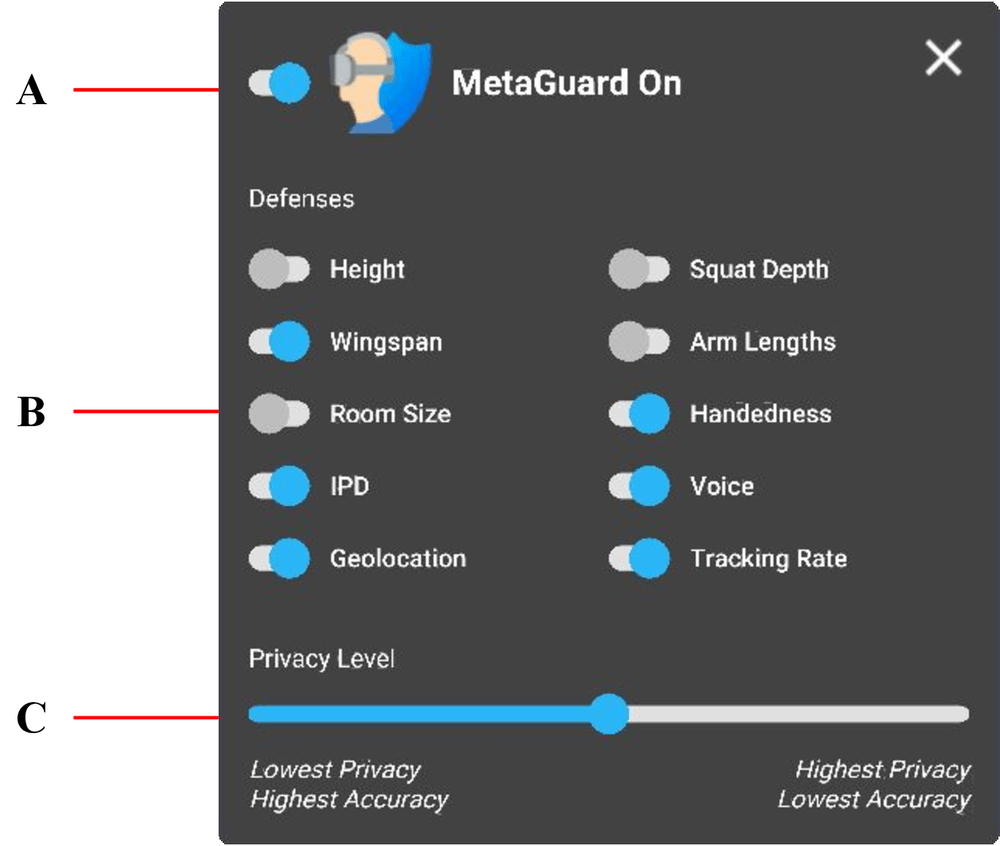[…]
with numerous recent studies showing the ease at which VR users can be profiled, deanonymized, and data harvested, metaverse platforms carry all the privacy risks of the current internet and more while at present having none of the defensive privacy tools we are accustomed to using on the web. To remedy this, we present the first known method of implementing an “incognito mode” for VR. Our technique leverages local ε-differential privacy to quantifiably obscure sensitive user data attributes, with a focus on intelligently adding noise when and where it is needed most to maximize privacy while minimizing usability impact. Moreover, our system is capable of flexibly adapting to the unique needs of each metaverse application to further optimize this trade-off. We implement our solution as a universal Unity (C#) plugin that we then evaluate using several popular VR applications. Upon faithfully replicating the most well known VR privacy attack studies, we show a significant degradation of attacker capabilities when using our proposed solution.
[…]
Source: MetaGuard: Going Incognito in the Metaverse | Berkeley RDI

Robin Edgar
Organisational Structures | Technology and Science | Military, IT and Lifestyle consultancy | Social, Broadcast & Cross Media | Flying aircraft

